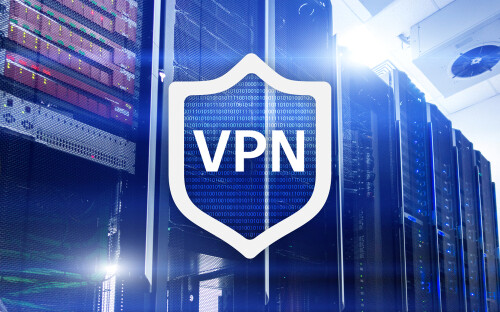Data protection is becoming more important than ever. The risk of cyberattacks has risen sharply, as more people are working from home even as the pandemic subsides. A recent report showed data breaches jumped 68% in 2021 to the highest level ever. That figure is likely to rise even more in the coming months.
One of the most unusual consequences of the war in Ukraine is the increased cybersecurity risk, with one report suggesting that Russia is preparing to launch destructive attacks on the US and similar western infrastructures.
This could put small businesses, sole traders and even remote workers at risk in some instances, so there’s no doubt that those of you with a home office should consider safeguarding this as a matter of urgency. If you want to work from home, then data protection is going to be vital.
One way that you can achieve this is through the use of a so-called VPN (virtual private network). But how exactly can a VPN protect your home office and its most sensitive data? Let’s find out!
#1. VPNs Help to Secure Your Data
One of the main security benefits of using a VPN is that it safeguards the transfer and storage of data. This is thanks to the main functionality of a VPN, which works by establishing a fully encrypted connection between two devices.
So, when you download a VPN onto your PC or laptop, your device will establish encryption keys that are used to encrypt (and potentially decrypt) any information that’s sent to another computer.
VPNs typically use secure SSL/TLS encryption protocols, which effectively routes all data through a virtual tunnel that masks both the nature of the content and your unique IP address.
Because of this, VPNs ensure that your Internet service provider will only ever see an encoded stream of data that’s being sent to a target server, making it largely impervious to the attention of hackers and cyberthieves.
So, even your most sensitive home office data can be stored and sent securely through a VPN connection, as it will appear as completely random and indistinguishable code to anyone who strives to intercept it.
#2. VPNs Allow You to Work Securely Out of the Home
A popular advantage of working from home is the flexibility that it brings, particularly if you ever want to visit a coffee shop and work from there while enjoying a much-needed change of scenery.
However, once you take your laptop out of the home, you’re placing your device and most sensitive data at the mercy of random public networks. Not only are these inherently insecure by themselves, but sophisticated hackers are known to target such networks by establishing familiar sounding access points through which unsuspecting users connect.
From this moment, the hacker can access your device and web traffic, potentially intercepting private data along the way.
However, the use of a VPN on your laptop can help in this respect, with the deployment of an encrypted tunnel blocking anyone on the same network (even the person responsible for managing it) from monitoring your activity or web traffic.
This effectively enables you to create a private and secure network on a public infrastructure, which is common at locations such as Costa Coffee or Starbucks.
#3. VPNs Allow You to Access a Work PC Securely
In some cases, you may use your home office setup to work remotely or establish a ‘hybrid’ working arrangement with your employer (which will require you to split your time evenly between the office and your home).
In this instance, you may need to connect to your work PC from a home office device, with this creating significant security and productivity risks in instances where it isn’t done particularly well.
Fortunately, a VPN enables you to connect seamlessly to your work PC using remote access software, without compromising on security or the integrity of the data stored on either device. This type of software is widely used on systems such as Windows 10, so executing a free VPN download for your home PC can genuinely empower accessible remote working.
All that’s required is for a private VPN to be installed and active on your home device, while a colleague will need to ensure that your work computer is switched on. They can also protect your device on a free Wi-Fi network.
As a note of caution, however, it may be worth reviewing your employer’s IT policy to ensure that it allows VPN access remotely. This shouldn’t be an issue in an age of hybrid and remote working, but if this practice is prohibited, you won’t be able to connect from your home PC.
The Last Word
According to a recent study by Claromentis, 73% of UK workers want to split their time between home and the office in the post-pandemic landscape.
When you add this number to the huge army of freelancers working remotely and in the thriving gig economy, you’ll see that the need for secure and functional home office spaces is becoming more pressing with every passing year.
At the heart of every secure home office should be a VPN connection, which can help you to secure your data, connect safely to public networks and even access your work PC remotely.
The key is to find and download the best and most competitively priced VPN, which also offers excellent network coverage and reduced latency where possible.

